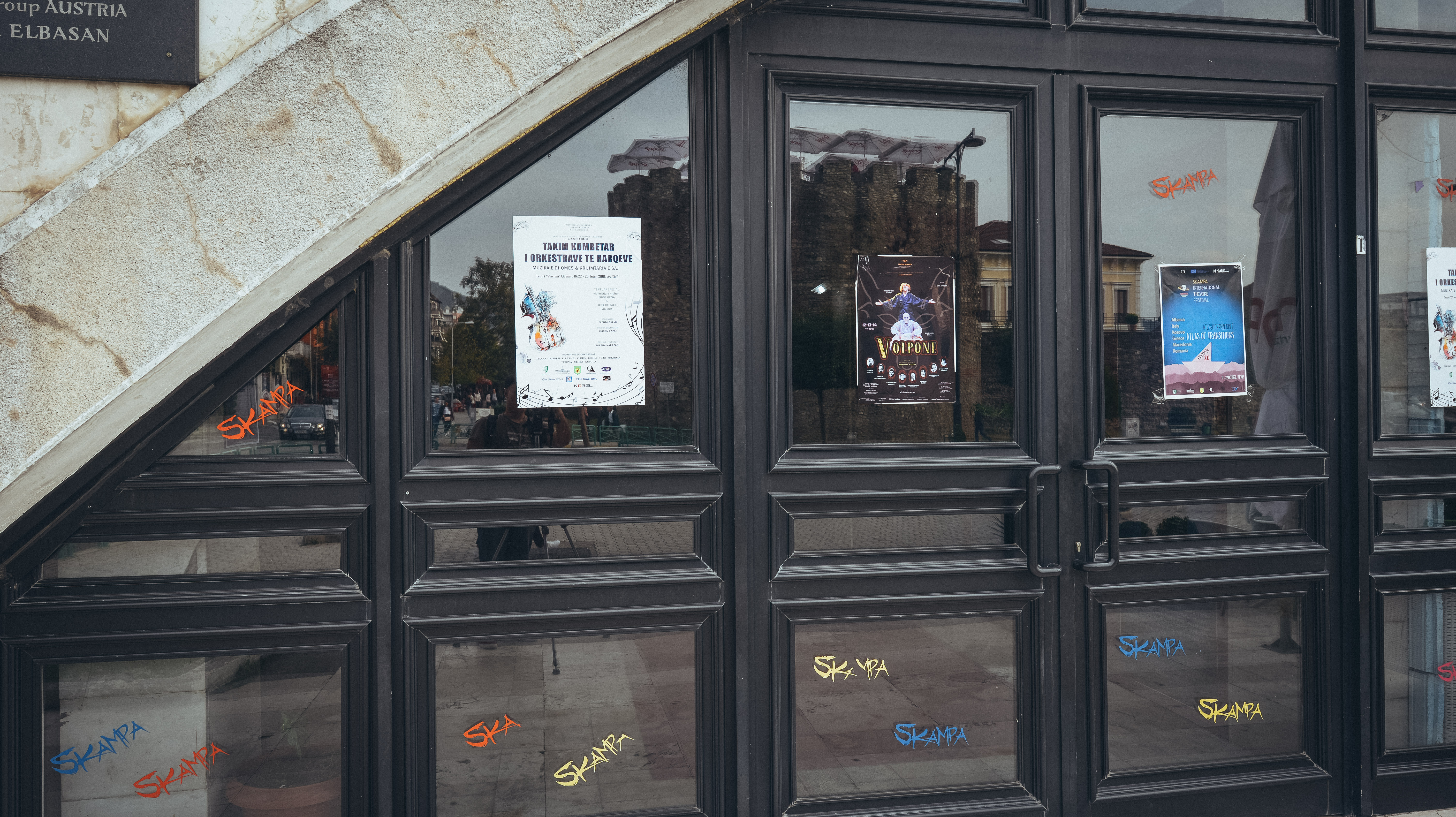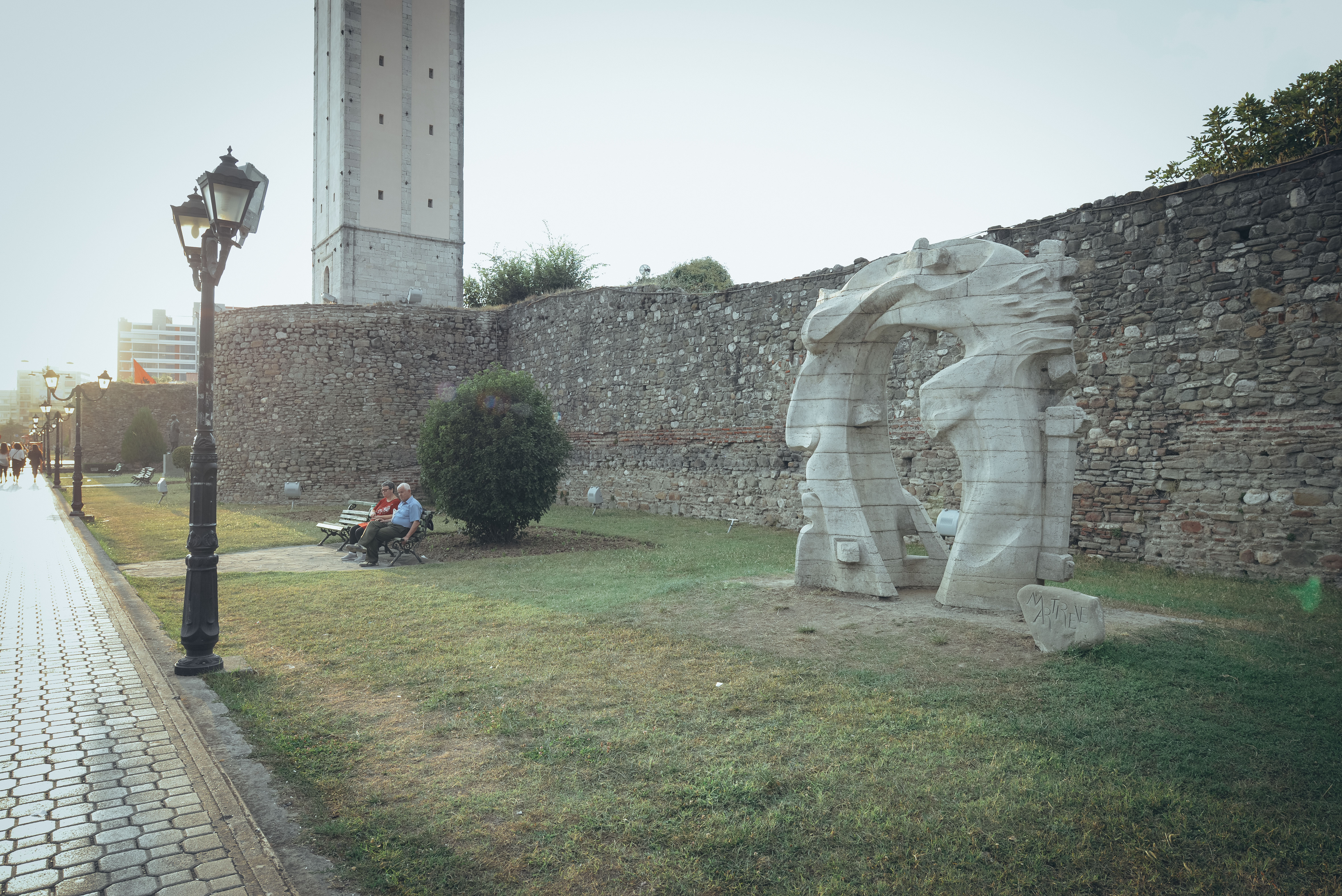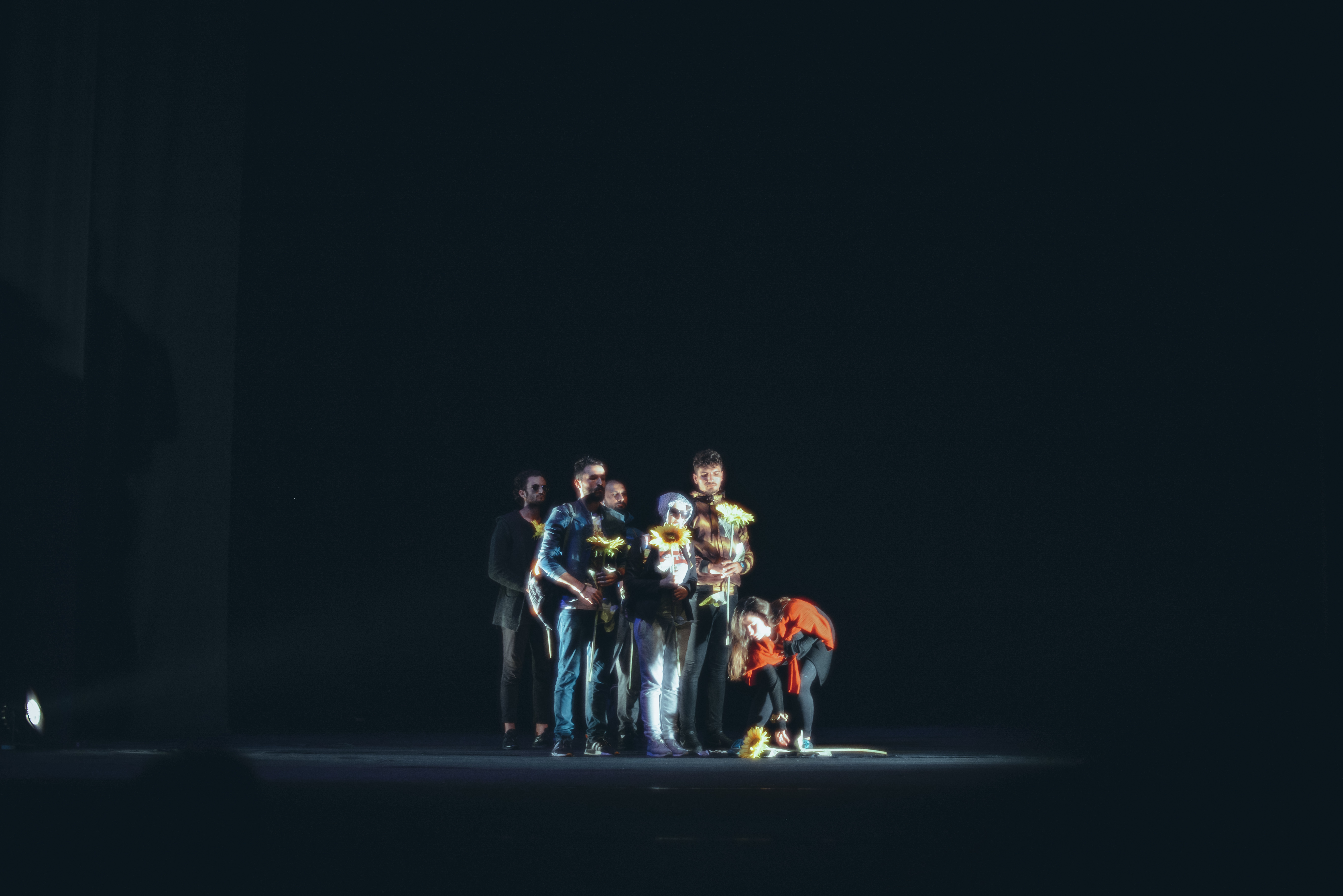Elbasan, 19/10/2018
During my 12-hour bus trip, I couldn’t help thinking how strange is that I never have visited Albania before and to actually know but a few things about my neighbours. On my arrival I feel tired and excited, eager to discover this new place and its people. What I wouldn’t expect, is that as soon as I would set my foot in the city of Elbasan, at 7am on a Friday, I would engage instantly in a conversation about migration, as if the very theme of Atlas of Transitions was waiting there to welcome me. A very polite employee of the bus company (our chat was off the record, so I won’t be stating his name), welcomes me in flawless Greek. He is around forty years old and in a less than ten minutes talk, I get to know that he lived in Greece and returned to Albania after twelve years. He tells me that these years were “…the best years of my life, never thought I would have to leave this place…”. He is married, has two children and says his life changed with the arrival of his firstborn, “when comes someone who cares about you and makes all hard work worth the while, you are not struggling just for your own self anymore…”.

Apparently, there is a big wave of returnees in Albania and this brings to surface a much less discussed aspect of the migration issue. What happens with the people that return to their countries, after a shorter or longer period of time and under what circumstances…? He believes that many return to Albania, yet they are ready to leave the country again if an opportunity presents itself. He is watching his city and the whole country changing, in transition…
It is a short glimpse of that change, I am about to experience during my short visit in Elbasan. Adonis, artistic director of Skampa Festival and ATK, one of our two Albanian partners in Atlas of Transitions, picks me up and we head to the hotel. We set up a meeting for 10am… I already know I will be needing all the rest I can get, because my first day is quite loaded…

Just a few hours later, at the Real Skampis Hotel, situated in the old town’s fortress, I meet the Greek troupe from Athens. A nice surprise is waiting for me. My friend Eugenia is performing in the festival. The play “Vassiliki Triantafyllou: Oh! Gianni m’!/ My son Giannis Makrygiannis”, is a monologue directed by Katerina Polychronopoulou. With Eugenia we were colleagues a few years back, at the National Theatre, in Corneille’s “L’ Illusion Comique” (original title in French). A play where theatre takes place inside the theatre play, inside the theatre venue. A multi-layered illusion… Much like the ‘theatre’ we choose (or not) to play in our lives and all that happens outside of it… Outside the fortress’s ramparts…
It is already time to meet the troupe from Skopje and we decide to shoot their interview at Skampa Theatre. As we cross the moat, now a beautiful garden, surrounding the old fort, as in a picture frame, a coffin passes in front of the big wooden gate, carried by six men. We are exiting the fort and the coffin enters the hearse… A tall man crying, leaning on a Pepsi logo. The street is wide, open. People are walking. The market’s stands, statues and walls and woes. A sunny day. People here live outside. Under the sun. They have ‘a place in the sun’, as the saying goes. Others don’t. I don’t see others. The ‘others’. In Athens, I meet foreigners everywhere and in all times. Refugees, migrants, tourists, visitors of professional nature.In Elbasan, it does not seem to be the case. Apparently, in Skopje the situation is not very promising, regarding migration issues.As Milos and Simona tell me, the city was once proclaimed city of international solidarity and yet, the current state is quite far from being solidarity to the ones looking for a better future. Unfortunately, we have to part soon, since they have to leave to perform in another town nearby and from there travel back home. A bit of the same for myself that I must join my partners to attend to another performance in a neighbouring town.
As I walk back to the hotel, I see the hearse again, this time parked right next to a playground. In my head I am hearing the man’s woes mixed with children laughter… Sorrow and joy, side by side. Death and life holding hands. To me this is what theatre is about and the least we could do as artists would be to go and meet the people where they actually are… At the city squares and sunny streets… Where all things take place, barter and funerals alike… Here is where theatre belongs, it being a ritual of life and death. A theatre where the beginning and the end become one. A theatre for man, for the people.
I meet Diana from Tjeter Vizion, our second partner in Atlas of Transitions project. We depart in a hurry for Librazhd, a small town – almost a suburb – situated at 25 km, northwest of Elbasan. We are driving there to watch a theatre play from Fier’s Teatri Bylis. The play “Vllazeri me interes (Brotherhood with interest)”, directed by Klajdi Marku, is presented in a school’s amphitheatre. We arrive in the nick of time and to my very pleasant surprise, a fully packed auditorium awaits us. Around two hundred teenagers have come to see the play, organized by the festival in collaboration with the school and the municipality. Although the performance’s direction and acting don’t not stray from a quite mainstream approach, it seems to be engaging the students a great deal. Even though due to the language barrier, I cannot follow the text which, as Kladji and Vassilis told me, was written by K. Flloqi in 1967; I can tell that the youngsters participate actively, laughing at the jokes and enjoy, with a loud, final applause coming to confirm my feeling.
Walking down the street with Francesca. We are discussing about “City ZOO”, the performance I just watched at Kino Vulnetari Social Centre. It was an open presentation of Cantieri Meticci’s workshop with local adolescents. Within just two days’ time (pretty intense ones, as I hear), they worked along with the young participants and created this small, yet amazingly bright jewel of a performance. Youngsters that had no previous experience in theatre and stage exposure, wrote their text, built their props and masks and brought us along in their short journey to a dystopian reality. With their bodies bursting of vital energy and sparking eyes, they talked to us about the illusion (a recurrent theme it seems…) of freedom and invited us to reflect on what is really making people feel as if they were entrapped within themselves and confined. Is it the ‘other’ or our very own self…? A bit later, Daniela, Brazilian of Italian origin, currently residing in Italy, is confirming my former observation. During our short while in the beautiful city of Elbasan, we haven’t met foreigners in the street. Furthermore, we notice that, in its striking majority, the coffee shops’ clientele consists mainly of male population. We are wondering whether the women are living abroad working or staying at home taking care of the household.
Later that night, I am watching the “Sunflower” performance from Lab Theatre ATK, co-directed by Xhuljano Brisku and Adonis Filipi. Full of passion, the young actors and actresses walk the stage in circles. This perpetual movement, symbolic reference to one of migration’s main characteristics, is interrupted by short dramatic moments, fragments of life inspired by people’s true stories. After the performance, Diana, one of the performers, will explain that as the sunflower is constantly looking for the sun, in the exact same way people are always looking for a better life…

Continue reading Day 2 of 3



